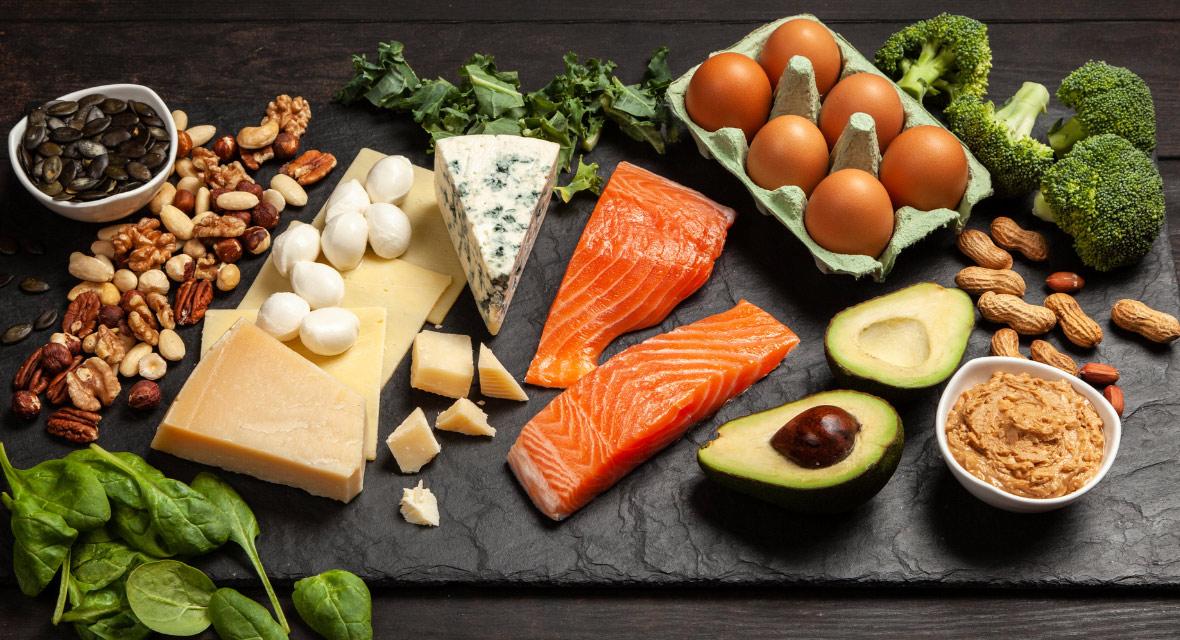🏆 As seen and loved on Shark Tank Dubai 🏆

How Much Protein Do I Need?
Understanding the protein intake for your body
Protein is undoubtedly the most popular macro-nutrient. You can see all nutritionists, health bloggers, celebrities, etc., continuously talking about the health benefits of protein and how it can help transform your health.
Apart from several health benefits, protein also controls hunger. However, excess of anything can cause mayhem in your system. Too much protein can lead to multiple health issues. So, how can we know how much protein is too much?
Everything you put in your mouth must nourish your body. Whether it is carbohydrates, fats, or proteins, all are essential to provide wholesome nourishment. They not only provide the body with energy but help prevent diseases and aid the body to function properly.
Each macronutrient must be consumed based on the requirement of your body or fitness goals. Before we go into detail about how much protein is required by an individual, let's understand the primary functions of the protein.
Functions of protein in a human body
Proteins are large, complex molecules and are considered the main building block of your body. They play many critical roles in cells required to build, function, and regulate tissues and organs. Protein helps build muscles, organs, tendons, skin, hormones, neurotransmitters, and enzymes.
Proteins are made up of smaller molecules called amino acids, attached like beads on a string. They form a long chain, and 20 different amino acids combine to form a protein. The long protein chains fold together to form complex shapes and eventually become various components in the body. Different types of components formed from protein perform various functions, such as:
- Antibody: Antibodies bind to viruses, bacteria, and foreign particles to protect the body.
- Enzyme: Enzymes carry out multiple chemical reactions in your body. These reactions are necessary for speeding up your metabolism.
- Messenger: Messenger proteins like hormones transmit signals between cells, tissues, and organs.
- Structural component: They provide stiffness and rigidity to cells. Different structural proteins serve different functions in the body. Keratin forms hairs and nails. Elastin allows the muscles to have elasticity, and collagen builds bones, tendons, ligaments, and skin.
- Transport/storage: The proteins in the cells bind to atoms and molecules and take them throughout the body.
How much protein do you need?
There is not any ounce of doubt about how vital protein is for our body. You must eat an adequate amount of protein every day. However, the opinion about their source and how much to eat vary widely.
Experts usually recommend 0.8 gm per kg body weight. However, it's a generalized recommendation that does not consider a person's lifestyle and activity level. Let's follow the dietary advice for protein by experts and how you can add them to your healthy meal plans .
When you are bulking
People have this caricature image of bodybuilders gushing down protein shakes like it's an indispensable part of their life. Bodybuilders need much more than 0.8 gm per kg of protein to pack on muscles. Sports nutritionists suggest athletes can eat around 2 g per kg. Initially, when you start training, you are breaking down muscle fiber; at that time, you need more protein.
After 12 weeks of training, you can scale back to 1.2 g to 1.6 g per kilo. Diet plans for athletes are customized according to the level of training and schedules. Moreover, whatever your diet plans are, they must be supported with physical exercises. This action stimulates the better absorption of nutrients and reaches your ultimate fitness goals.

When you are losing weight
A weight-loss diet must include a good mix of macro and micro-nutrients. Most nutritionists suggest that for healthy weight loss, a person must consume 1200-1600 kcal a day. The approximate suggestion for macros for weight loss is protein (25% -15%), carbs (32% – 65%), and fat (40% – 20%).
Protein-based weight loss diet plan can help you feel full and improves the secretion of satiety hormones. Since there are so many weight-loss diets, it is advisable to customize your weight-loss plan from an expert. Every individual's weight loss journey is not the same, so how can a standard meal recommendation work for them? Talk to our nutritionist; they can help you curate a bespoke meal plan that nourishes you and supports you in your weight loss journey.
When you are pregnant
When you are growing a tiny little miracle in your body, you must ensure you are providing adequate nourishment to yourself and the growing fetus. A diet plan during pregnancy is crucial for the baby's healthy development.
During pregnancy, you can consume a minimum of 60 gm of protein in a day, which can be 20-25% of your overall calorie intake. Inadequate protein consumption during pregnancy can put your child at risk of developing diabetes, obesity, and high blood pressure in the later stages of life.
When you are breastfeeding
Most mothers crave to get back into shape after their pregnancies. However, if you are breastfeeding, you are recommended to take it slow. Mother's milk is the main source of nutrition for babies under six months of age, which is critical for the proper physical and mental development of the child.
To fuel your milk production, nutritionists recommend having a protein-rich diet. Total consumption can be anywhere between 54 gm to 60 gm daily.
When you are a vegan
Vegans are redefining the way people think about protein. Contrary to popular belief, it is straightforward for a vegan diet to meet recommendations for protein. According to a vegan nutritionist, adult male and female vegans must consume 60-63 gm and 52 gm of protein per day respectively.
However, depending on your health goals, the recommendation might change. Veganism is gaining popularity in the sports world because of the multiple health benefits of a vegan diet for athletes. Take recommendations from a certified nutritionist in Dubai as they can guide you in the right direction, or get a customized vegan meal delivered right to your doorstep.
When you are a vegetarian
Vegetarian diet plans are more flexible than vegan and allow some animal-based protein in your diet. Dairy products and eggs are part of a vegetarian diet and are a rich source of protein.
The recommendation for protein is the same for vegetarians as for anyone else. However, the protein source for vegetarians is different. Some of the rich plant-based protein sources are tofu, soybean, edamame, spinach, hemp seeds, almonds, etc.
When you have kidney problems
If your kidneys are not functioning properly, urea can build up in the bloodstream. This can lead to several health issues and electrolyte imbalances. Doctors recommend a low-protein diet to prevent your kidney from overworking.
People suffering from chronic kidney disease (CKD) or acute kidney problems must restrict their protein intake. It should not be more than 0.8 gm per kilo or your body weight.
Side effects of excess protein intake
The poster boy of the nutrition world (Protein) can create havoc in your body. Consuming a high amount of protein can cause unwanted pressure on your kidney. Some of the main problems caused by a high-protein diet are:
- Vascular abnormalities
- Short-term weight loss
- Constipation
- Bad breath
- Dehydration
- Diarrhea
- Increased cancer risk
- Calcium loss
- Heart disease
Conclusion
Protein helps maintain body tissues, muscles, organs, nervous system, skin, hair, and nails. It also transports important elements like fats, oxygen, vitamins, and minerals to different organs. There is no doubt protein is essential for good health.
However, do not expect it to be a panacea. Consuming too much protein can lead to multiple ailments and put pressure on the body to digest fibrous protein-based food. Make sure that you get a diet plan from a certified nutritionist.
Moreover, you can also leave the worry of calories and macro calculation to us and get the pre-cooked healthy meal delivered to you. Just select your ideal meal plan options and leave the rest to us. Apart from meal plan in Dubai, we have services of meal plans in Abu Dhabi and Sharjah, and we are expanding fast in the other emirates of the UAE. Simply heat and enjoy tasty meals. Keep your protein and other nutrients in check with us.
Reach out to start your fitness journey with us!
Meal Plans
Delivery Details
Legal Information
© 2020-2026 VMeals. All rights reserved. VMeals™ is a trademark of Flip Side Restaurant and Cafe L.L.C
We accept
